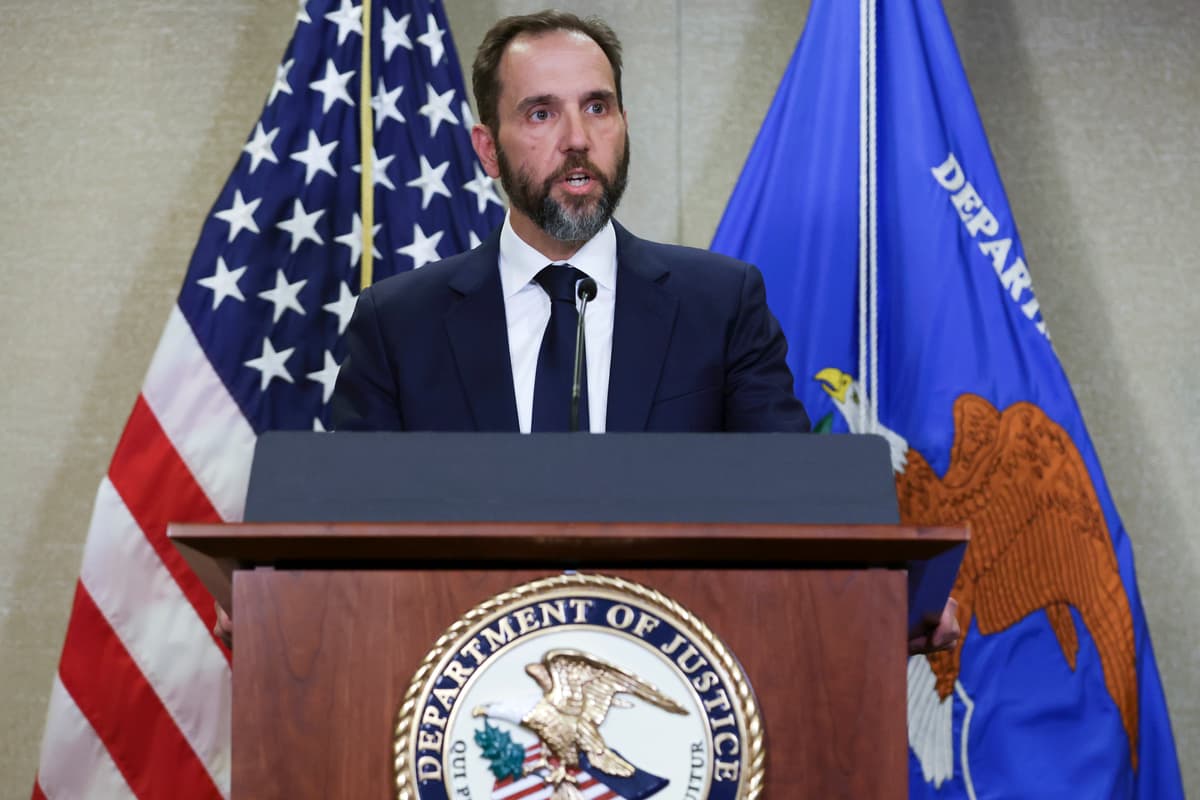Jack Smith and the Presumption of Guilt
The erstwhile special counsel began his case by invoking the presumption of innocence, and, absent a verdict, he ended it with the presumption of guilt.

Special Counsel Jack Smith began his tenure waxing about the presumption of innocence, and he concludes it all in on the presumption of guilt. That is what we glean from his final report on his prosecution of President-elect Trump for election interference, which was released to Congress in the small hours on Tuesday morning. It is an extraordinary document, albeit one that voters reduced, with their verdict in November, to a historical footnote.
When Mr. Smith announced his case against Trump, back on August 1, 2023, he acknowledged — the word he used was “emphasize”— that the indictment “is only an allegation and that the defendant must be presumed innocent until proven guilty beyond a reasonable doubt in a court of law.” That may be boilerplate, but it is also bedrock — the Constitution’s 14th Amendment’s promise of the “due process of law.”
Mr. Smith’s final report appears as if it emerged from another universe entirely. He writes that “but for Mr. Trump’s election and imminent return to the presidency … the admissible evidence was sufficient to obtain and sustain a conviction at trial.” The prosecutor’s language is chosen carefully. As our A.R. Hoffman explains, “but for” is legalese that suggests the tightest of relationships between cause and effect. As in lead-pipe cinch.
Maybe, but that would have been a decision for a jury that will never be empaneled for a trial that will never be held. Nor has anyone heard the defense. Mr. Smith acknowledges the Department of Justice’s position that “the “Constitution’s prohibition of the continued indictment and prosecution of a president is categorical.” Still, he stands by “the strength of the Government’s proof and “the merits of the prosecution.” Defense be damned.
Evidence, though, does not exist in splendid isolation. It is tested in court, through examination and cross-examination. It is disputed, and sometimes it is even ruled inadmissible. This would have been especially so in a case involving presidential immunity, which the Supreme Court, in Trump v. United States, ruled applies to the use of evidence in the prosecution of a former president. There was lots of litigation ahead in this case, even if Trump lost the election.
One thing we did learn is that Mr. Smith failed from the get-go to understand presidential immunity. The Supreme Court had to school him. It ruled that official presidential acts are presumptively immune. Even after that decision, he came back with a superseding indictment that was already edited at the edges and retaining the same four charges. Even had Trump lost the election, the case could have ended up back at the high bench.
Nevertheless, Mr. Smith writes that “substantial evidence demonstrates that Mr. Trump then engaged in an unprecedented criminal effort to overturn the legitimate results of the election in order to retain power.” One need not carry a brief for Trump in the aftermath of the 2020 election to note that such a statement is a proposition to be proved rather than a catechism to be repeated.
Mr. Smith’s report steams with frustration, but at whom? Trump behaved as any defendant fighting for his name, and his counsel was zealous, it was also effective. President Biden is reportedly incensed at his attorney general for waiting so long to hire Mr. Smith, the implication being that more time would have meant a conviction before the vote and a victory for Mr. Biden or, in the event, Vice President Harris. There it is, the presumption of guilt.
The American people, though, had other ideas, and they delivered their verdict before Mr. Smith could offer his opening statement. It cannot be said that they did so in ignorance of the cases Mr. Smith built over the last year. His final report adds little that was unknown except Mr. Smith’s own belief that Trump was guilty. We have little doubt that the prosecutor is sincere. We do doubt that he ever accorded Trump the presumption of innocence.

